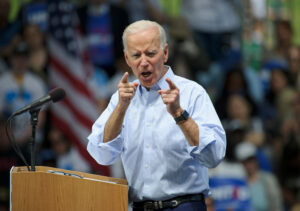If there was one thing the Conservative Party cherished – and the British electorate admired – it was a reputation for economic competence. In the early 1990s, the opposition Labour Party was struggling to reinvent itself as an alternative government that could be trusted with the national piggy-bank, but that wasn’t easy… until Black Wednesday arrived in 1992 like a specter at the Tory feast.
The European Union’s Exchange Rate Mechanism (ERM) was set up in 1979 as a prelude to a single Euro-currency, but Britain refused to join. Subsequently, Chancellor Nigel Lawson decided to ‘shadow’ the Deutschmark, unofficially linking Sterling to Germany’s stable currency. But squabbling broke out within government, his approach was criticized by Alan Walters – Prime Minister Margaret Thatcher’s economic advisor – and Lawson resigned.
But the pro-ERM faction prevailed and the UK joined in 1990. ERM membership required economic and monetary policies that would maintain exchange rates within narrow bands, but Britain was in the grip of high inflation and high interest rates. As a result, Sterling fell to its lowest permitted level by 1992 and was coming under pressure from international speculators led by American George Soros, who were betting the pound would be forced to leave the ERM and devalue.
How right they were. Their inexorable short selling (entering future sale contracts at today’s price in anticipation of buying the necessary currency more cheaply when it has to be delivered) finally broke the pound on September 16, when the Treasury’s increasingly frantic efforts to prop up Sterling had cost £27 billion. Chancellor Norman Lamont was forced into the humiliating admission that Britain would leave the ERM with immediate effect and let the pound find its own level. Black Wednesday is estimated to have cost Britain £3.5 billion, and earned George Soros $1 billion.
When was the Black Wednesday: September 16 1992
Where was the Black Wednesday: UK
What was the Black Wednesday toll: The Conservative reputation for economic competence was shattered, paving the way for the crushing election victory of Tony Blair’s New Labour in 1997. Ultimately, however, the devaluation of the pound proved to be beneficial for the British economy, which would soon come out of recession and then enter an era of unprecedented annual growth.
You should know: To rub salt in the wounds, had the Treasury and its political masters been more astute, Black Wednesday could have become a nice little earner for the British taxpayer, if the country’s large foreign currency reserves had not been squandered in that doomed attempt to prop up Sterling, it is estimated that the nation could have made a £2.5 billion profit on the subsequent unavoidable devaluation.






















